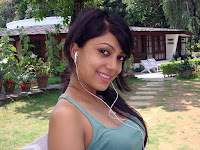DHNS – Aakanksha Devi
Language matters
From “shall I compare thee to a summer’s
day” to “aal izz well”, conversational language has indeed come a long way!
No matter what the language, people seem to
be more influenced by the film and television culture than they are by
literature. This may primarily be due to the fact that around 20 years ago, the
television wasn’t as common as it is now. Books and stories were - up until the
early 90s - the main source of entertainment for the youth, who now continue to
carry the torch of the book culture while the new generation has grown up on
television.
The television series ‘F.R.I.E.N.D.S.’,
which caught the attention of almost all the youngsters at the time, was a huge
factor in introducing the city to colloquial ‘lingo’. Words and phrases such as
‘like’, ‘whatever’ and ‘Oh my God’ were popularised by the six characters from
the sitcom and from then on, it seems to have stuck on as part of trendy
talk. Moreover, people, especially
teenagers, began to emulate the lifestyle of these fictitious characters.
So in doing the things they saw on
television, they inevitably began to also relate to the characters. Thereby
conversations were not only dominated by discussing programmes but also
discussed in the tone and language they were now accustomed to.
Meghna D, a scientist who is a voracious
reader says that the reduction in the number of people reading has caused this
change. “It’s not really that people are more influenced by film or tv but at a
basic level it’s that they don’t know any better.
Literature has taken a back seat. So if you
were to speak like Dickens or Chaucer, chances are that only one other person
is a group of 10 has understood what you’re talking about,” she says.
So in imitating dialogues, we seem to be
losing track of the traditional form of the English language, which according
to some youngsters may not be a bad thing.
 |
| Vedika R |
“In Shakespeare’s time they spoketh
formally. Then when the British were here it was Queen’s English. Now it’s tv
lingo, the popular culture of our time. It’s quite regressive of people to look
down on the new sort of language,” says Vedika R, a student of communication
and media.
In addition to just moving away from the
book culture, Sahana Das, Head of Communication Studies, Mount Carmel College
“I wouldn’t say that it is only television
and film that is causing kids or all of us really, to speak differently. I
think with the advent of internet, people are exposed to various cultures,
languages and media that they pick up from their. And it is not only the
language but behaviour too…which is not really a bad thing,” she comments.
 |
| Arjun Varma |
Another possible cause for increased
colloquialism may well be that film and television characters have mass appeal
when compared to the more intangible book characters. Arjun Varma, an
independent film maker and script writer says that because there is so little
time on hand these days, people take the short cut to literature by watching
movies.
“Harry Potter is the best example. Everyone
knows about it but has everyone read it? Of course not! I certainly haven’t but
I know the dialogues and spells like I know the alphabet,” he chuckles. He also
believes that literature characters are looked at as more aspirational.
“People like to be ‘Romeo and Juliet’ but
essentially they are ‘Homer and Marge’! So they begin to talk like the
characters that are far more true to life…especially like dysfunctional Homer
Simpson.” Sahana too feels that language in film and television is more
accurate in reflecting the society at the time.
“It’s that film and tv have always mirrored
the language of the people while written was considered more intellectual…like
the Victorian time. Now however, the lines are blurring and the gap between
written and spoken language is fast reducing,” she sums up.

No comments:
Post a Comment